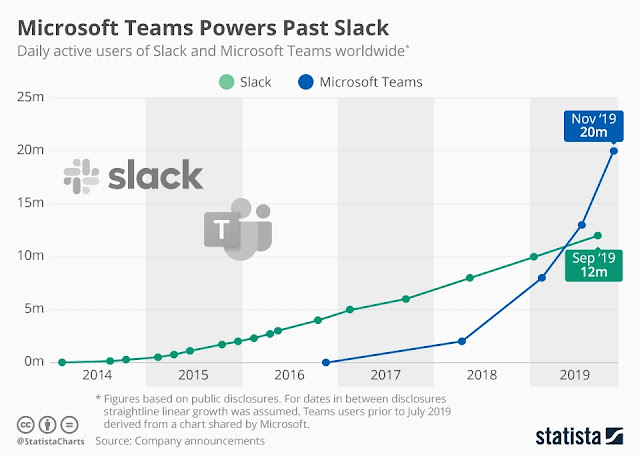The notion that Teams is a “copycat product” deliberately aping Slack is, well, interesting. It sounds true on its surface. After all, Slack launched in 2013, and Microsoft didn’t announce Teams until 2016. But there’s a catch. Teams didn’t spring into existence from thin air. It was, rather, a replacement for Skype for Business (announced in 2014), which was a renaming of Lync (2010), which had succeeded Office Communicator, the client for the Office Communication Server product that went all the way back to 2005.
That’s a continuous line of enterprise communication products, all in the Office family, that offered voice calls, text chat, and live meetings, with links to OneNote, Outlook, and other Office apps. Teams took those same features and put them in a more modern, cross-platform interface. It also melded in features from SharePoint, OneDrive, and Outlook and, crucially, moved everything from on-premises servers to the cloud.
Ed Bott
I know next to nothing about Slack – nor do I have any desire to learn another chat tool – but I can attest to the gradual evolution of Microsoft’s office communication tools, as my current company also transitioned over the years from Lync to Skype for Business and now to Teams. Slack’s formal complaint filed with the European Commission looks dubious especially given how their CEO stated only months ago that Teams isn’t a competitor after all. I guess some Slack executive felt left out among the recent antitrust activity and decided his company needed to make headlines.

Ben Thompson has an interesting and in-depth article about the competition between Slack and Microsoft, and he comes to a similar conclusion from another perspective. From what I understand, Slack is increasingly focused on connecting different companies through Shared Channels, while Teams is primarily designed for use inside an organization. This makes it sound like Slack is competing with email, and it that is the case, I wish them luck – email is here to stay.
This is what Slack — and Silicon Valley, generally — failed to understand about Microsoft’s competitive advantage: the company doesn’t win just because it bundles, or because it has a superior ground game. By virtue of doing everything, even if mediocrely, the company is providing a whole that is greater than the sum of its parts, particularly for the non-tech workers that are in fact most of the market. Slack may have infused its chat client with love, but chatting is a means to an end, and Microsoft often seems like the only enterprise company that understands that.
Ben Thompson
Post a Comment